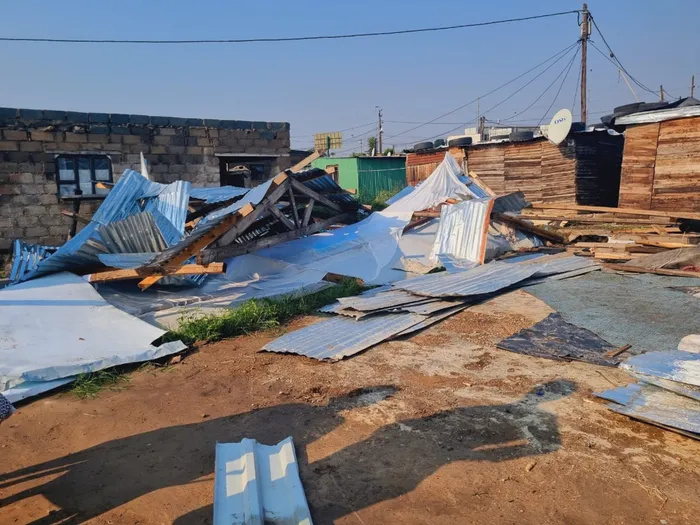Durban focuses on climate change adaptation and resilience

The recent tornado that hit Inanda and surrounding areas north of Durban is an example of climate change threats, says the City.
We are being forced to face the truth – climate change is real and the recent tornado that hit Durban last month is proof that we need to brace for more erratic weather patterns.
In Durban we can expect to have more frequent intense periods of rain, extended drought and sea level rise, according to experts.
Climate change is one of the most serious threats to mankind. The challenges it poses puts communities at risk - especially vulnerable, poor communities who have no means to protect themselves.
Durban began its climate change mitigation, adaptation and resilience journey a while ago, but we have a long way to go, said Itumeleng Masenya, manager for climate change mitigation at eThekwini Municipality.
Ms Masenya unpacks what the city is doing to reduce the impacts of climate change.
“Our response to climate change has two approaches – one is to adapt to climate change, reducing the climate risks. Alternatively, to mitigate against the impact of climate change, we need to reduce greenhouse gas emissions that contribute to global warming,” said Ms Masenya.
“Much of what Africa as a continent contributes towards global greenhouse gas emissions is currently human induced. We use fossil fuels, and this contributes to global warming.”
She said some of the climate change threats include heat waves, flash floods as experienced in Durban, and recently the mini tornado in Inanda.
She said the City has found that communicating with vulnerable residents, like those in informal settlements in Quarry Road, has helped avoid catastrophe whenever there are threats of extreme weather.
“In communities like the informal settlements in Quarry Road, whenever we are expecting bad weather we inform the residents via WhatsApp messages. This alerts the residents to be cautious and make alternative arrangements to leave the settlement if something were to happen,” said Ms Masenya.
“Collaboration and working with the communities have proven to be a success for us. As much as our people have indigenous knowledge of weather patterns – as experts, it’s our responsibility to empower and educate them. The Quarry Road settlement demonstrates how important it is to work with the communities and empower them with knowledge. So, whenever there is threatening weather people know what to do – this way many lives can be saved.”

Ms Masenya said the City’s greenhouse gas emissions contribute to only 3 to 6% at maximum to climate change. She suggested that communities and the private sector make simple acts to reduce emissions. The City, she said, was considering introducing electric buses. The transport sector contributes to 26% of greenhouse gas emissions globally.
Ms Masenya said many people rely on using their private transport instead of public transport and this needs to change. In homes we can reduce our water, fuel and electricity consumption – cutting back on fossil fuels.
“Climate change is everyone’s business, and we all need to make an effort to get involved and make a change,” said Ms Masenya.
